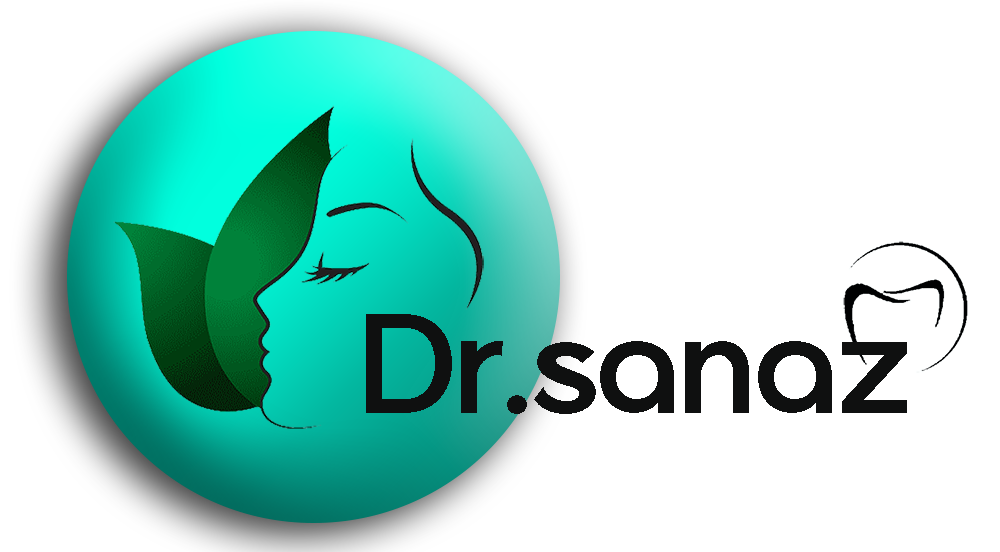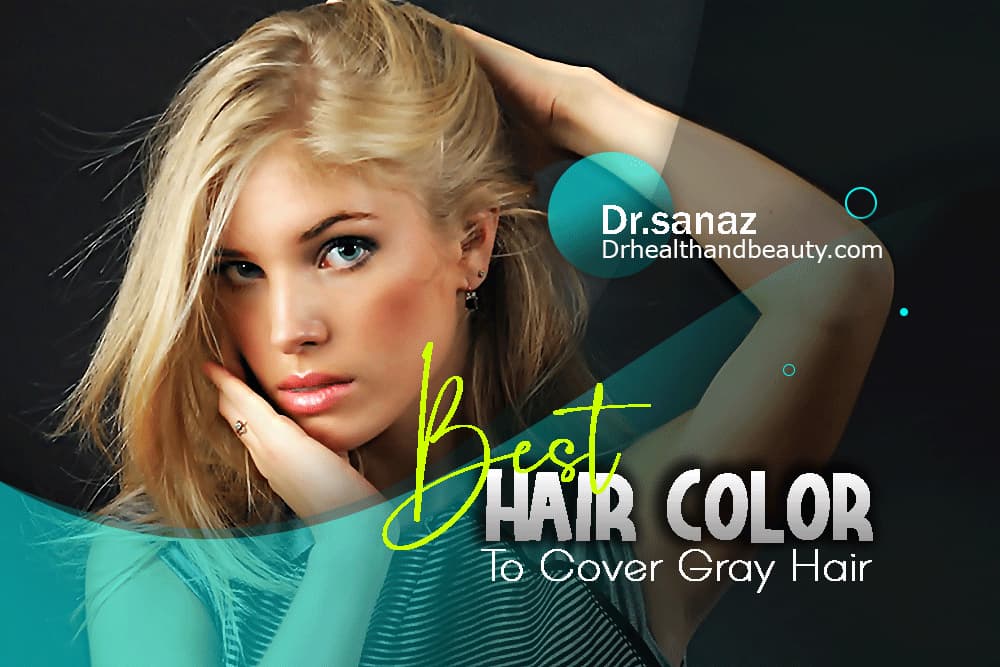
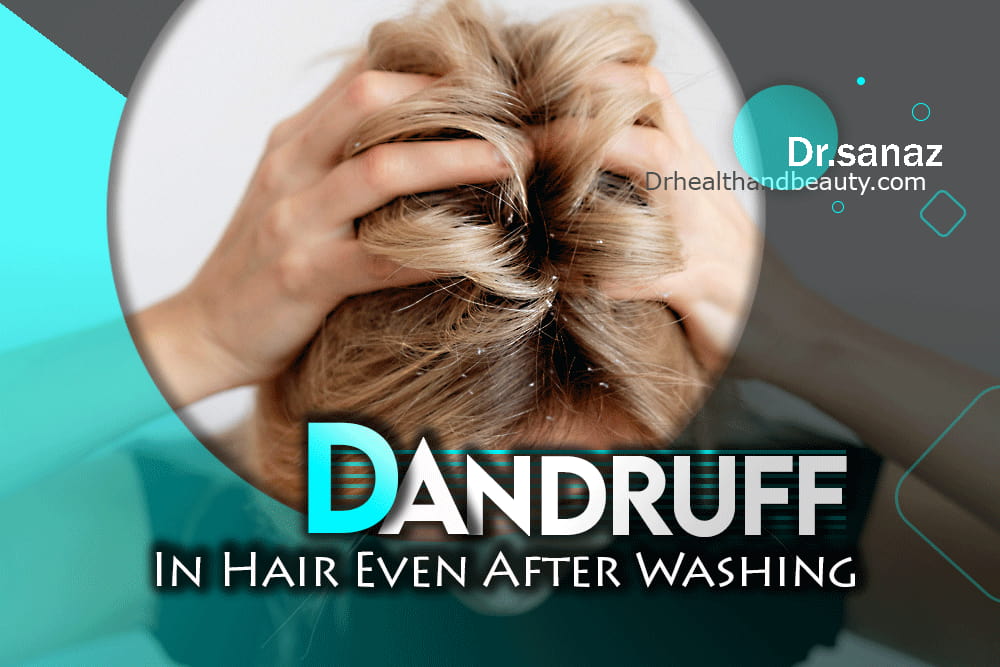
Dandruff In Hair Even After Washing
Table of Contents
Dandruff in hair is one of the common diseases that occur at different ages. it is not contagious, they are not dangerous for your body, but it may cause cleanliness and beauty problems.
Dandruff, with the scientific name Pityriasis simplex capillaritis, is a complication of the shedding of scalp cells. Human skin is constantly regenerating cells on its outermost surface due to keratin. For this reason, the cells of its outer layer are destroyed in constant contact with the surrounding space, and new cells replace it. If this process of cell death increases in the scalp, it can be seen as dandruff.

Dandruff symptoms
- Scaling of the scalp, hair, eyebrows, beard, or mustache
- itchy scalp
- Scaling of the baby’s head (cradle cap)
- Sometimes you may feel a burning sensation in your head
- Sometimes you may feel like your head is sore or injured
- Fatty patches are seen on the scalp
- In severe cases, the scalp becomes red and swollen
- Temporary hair loss
- Scalp flaking that worsens in cold weather
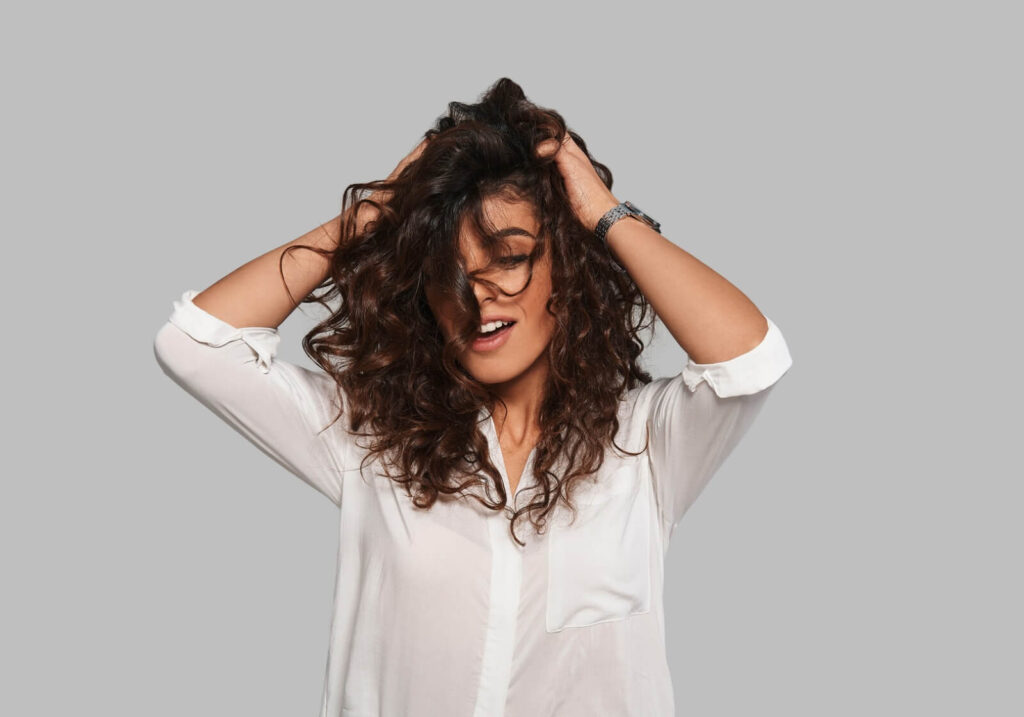
What is the cause of Dandruff in hair?
It can occur for a variety of reasons, including:
- Irritated and oily scalp
- Scalp sensitivity to hair care products
- Washing the hair with enough shampoo, not observing hair hygiene, or leaving the shampoo on the hair during washing causes dandruff in the Hair After Washing.
- Occurrence of fungi such as Malassezia yeast; Malassezia grows mainly on the scalp of adults.
- Having skin diseases: skin diseases such as eczema or psoriasis create an inflammatory condition for the skin that causes rapid, rough, and dry accumulation of dead skin cells in the form of thick scales, which we know as dandruff and can cause dandruff—the hair after washing.

- Age: This complication usually starts when a person is young and continues until middle age. This does not mean that older people do not get this diseas. Dandruff, even after washing, can be lifelong for some people.
- An imbalance of hormones, especially androgens, can cause This complication.
- Improper and unhealthy nutrition, lack of vitamins and minerals
- High stress and sweating caused by it
- Fungus: Two types of fungi cause Dandruff in hair: Malassezia strict and Malassezia globose. These types of fungi need human skin fat to grow. They settle on the human skin and break down the scalp fat into their desired fatty acids, causing dandruff even after washing.
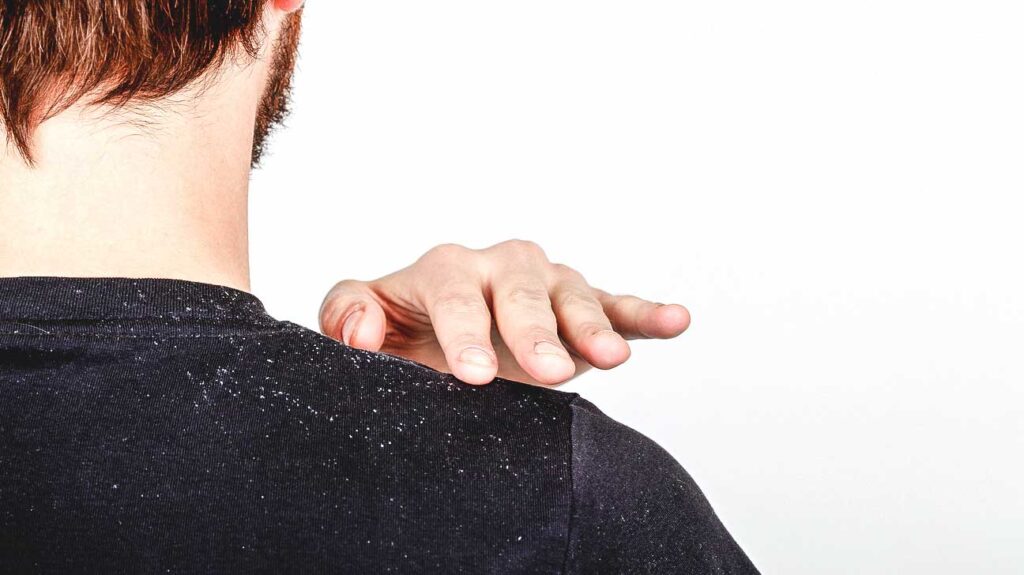
- lack of sleep
- Damage caused by excessive hair drying and curling and damage caused by excessive hair dyeing and babbling cause Dandruff in hair.
- Specific diseases: diseases such as Parkinson’s, HIV positive, or other diseases that affect the body’s nervous system increase the risk of Dandruff in hair.
- Seborrheic dermatitis: This disease can affect any part of the body. However, it usually affects the scalp due to scalp involvement in seborrheic dermatitis, red or gray scaly rashes that itch the scalp. If this disease is not treated on time, the hair follicles are damaged, and it causes hair loss and Dandruff in hair even after washing.
- Fungal infections: An infection such as ringworm can cause severe itching of the scalp. However, this type of disease has other complications in some people. For example, some people may start losing hair in bunches. Other fungal infections can also cause symptoms of dandruff, even Afte Washing, and eventually lead to hair loss. In this situation, the complications caused by it can also be treated by using antifungal treatments.

- Lichen planopillaris: Lichen planopillaris disease is more common in women and causes skin rashes and dry skin on the scalp. Also, this disease can cause hair loss in bunches. Although this disease has symptoms similar to dandruff, the usual treatments for dandruff do not cure this disease.
- Scalp Psoriasis: Psoriasis is an autoimmune disease that can affect the scalp and cause irritated, scaly patches. Although this condition is not always a sign of dandruff, it has complications similar to Dandruff in hair that you can see even after washing. This disease also causes bald spots and scaly patches.
- Male pattern baldness: This disease is a type of hormonal hair loss that both men and women suffer from. This disease sometimes causes dandruff-like scales.

- Telogen effluvium: This disease is hair loss caused by infection, injury, or stress. Symptoms similar to dandruff, even after washing, can be seen in this disease.
- Alopecia areata: This autoimmune disease causes scalp inflammation, scarring, and skin infections. As a result, dandruff or scales are observed on the head.
- DeCalvan folliculitis: This rare inflammatory disease destroys hair follicles. Scalp folliculitis also causes itchy red patches on the scalp. For this reason, this disease is confused with dandruff.
Note that any condition that causes itching or burning the scalp can also cause hair loss.

Complications of dandruff
Due to its side effects, dandruff can harm your health. Some of the complications of Dandruff in the hair are:
- boil
If your skin is prone to acne, dandruff can make it worse; So, try not to let your hair fall on your face.
Related: “Home Remedies For Hair Fall And Regrowth“
- Pimples on the back
- hair loss
Constant itching of the skin due to dandruff causes hair loss.
- eye infection
Eyelid edema is another common eye infection that occurs due to dandruff. Dandruff causes the eyelids to become infected, red, itchy, and inflamed; scales similar to dandruff appear on the eyelashes.

Types of dandruff
There are two forms: dry dandruff and oily dandruff, the definition and characteristics of each of which will be seen below:
-
dry dandruff
Dry dandruff is white, flat, and visible patches of the scalp. These layers are easily separated from the scalp.
Those who suffer from dry dandruff usually have dry hair, and dry dandruff, in most cases, causes annoying itching, which makes this scratching, the process of growth and reproduction faster, and causes an increase in dandruff even after washing.

oily dandruff
Oily dandruff particles are smaller, rounder, and slightly yellowish. These particles stick to the scalp as fat particles, and removing them like dry dandruff is not easy, and it causes scars on the skin.
By scratching the scalp, if the dandruff is greasy, the person will experience severe hair loss, and for this reason, it is better to avoid scratching the head in this situation strictly.

Ways to prevent Dandruff in hair
The best treatment is prevention, and preventing any disease or complication before it occurs is better. Dandruff in hair is not a dangerous complication, but its treatment can be difficult and time-consuming; therefore, preventing dandruff can be an essential issue. Below are some ways to prevent Dandruff in hair:
- Prevention of dehydration
How much you drink can affect your dandruff problem. If your body needs enough water, the chances of you getting dandruff will decrease. Remember to drink 8 to 10 glasses of water a day. Also, use water-rich fruits and vegetables and avoid drinking too much coffee and tea.
- Modify your diet
In order to prevent dandruff, include foods rich in omega-3 fatty acids, zinc, and vitamin B6 in your diet. These ingredients include wheat germ, bran, walnuts, liver, pepper, fish, potatoes, cashews, eggs, olives, and raw vegetables.
Remember to avoid very
Related: “What Is The Most Permanent Method Of Hair Removal?“

- Be exposed to sunlight
Sunlight improves the production of vitamin D3 and stimulates the production of healthy fats on the skin. To prevent Dandruff in hair, expose yourself to the sun for a few minutes during the day when the sun is not too intense, such as early morning or late afternoon.
Before doing this, We suggest you read the “How To Prevent Sunburn Without Sunscreen?” article.
- Control your stress
Stress is another cause of Dandruff in hair even after washing. Stress and anxiety can change the chemical balance in the human body and cause excessive sebum secretion on the skin and, as a result, increase the amount of dandruff.
To manage your stress, meditate or use methods that help you relax your mind and body to control your stress.
You may also be interested in the article “Sertraline“.

- Use a quality comb or brushes
Not combing your hair daily is one of the causes of dandruff even after washing. Regular and correct combing or brushing removes dry flakes from the scalp and directs blood flow to the scalp, strengthening your hair.

Important points about the comb or brush:
- Use a quality comb or brush.
- Do not share your shoulder or breast with anyone.
- Wash the comb or brush with spa water to remove skin oil and impurities.
- Preferably use combs or fat brushes that have beneficial properties.

Using anti-dandruff shampoos to treat dandruff
Shampoos are one of the most effective and common ways to treat dandruff. Shampoos containing the following ingredients may help prevent and reduce dandruff.
- Zinc pyrithione shampoos
Zinc pyrithione helps to eliminate bacteria and fungi on the scalp and is effective in treating dandruff, skin inflammation, and even eczema and psoriasis. Shampoos containing zinc portions are suitable for most hair types. Skin sensitivity may be one of the side effects of zinc pyrithione shampoos.

- Shampoos containing coal tar
Coal tar slows the process of scalp cell death and reduces skin scaling, so shampoos containing coal tar are effective in treating dandruff and psoriasis. One of the side effects of these shampoos can be a color change in light-colored hair.
- Shampoos containing salicylic acid
Salicylic acid controls excess oil on the scalp and prevents dandruff by removing dead skin cells. Salicylic acid has a mild antiseptic effect. So, if you suffer from oily dandruff, shampoos containing salicylic acid are suitable for your treatment. Pregnant women should use these shampoos with the doctor’s advice.

- Shampoos containing selenium sulfide
Selenium sulfide fights the fungi that cause dandruff, is antiseptic, reduces scalp oil, and is used to eliminate itching and flaking of the head after washing. Shampoos containing selenium sulfide are effective in treating dandruff but should not be used without a doctor’s prescription.
Pregnant women should not use this shampoo containing selenium sulfide; its use during breastfeeding should also be done with caution. It is also necessary to prevent the contact of shampoos containing selenium sulfide with the eyes, genital areas, and damaged and inflamed skin parts.
- Shampoos containing ketoconazole
Ketoconazole is an antifungal that can prevent the fungus growth that causes dandruff. Shampoos containing ketoconazole are usually used to treat fungal infections of the scalp. They also solve problems such as excessive dandruff or psoriasis.
Ketoconazole shampoos are available in the market in two types, 1% and 2%. The 2% type of this shampoo must be used with a doctor’s prescription. Irritation of the skin of the scalp, formation of pimples such as dry hair, oily or dry hair or scalp, change of natural hair texture, and color change can be side effects of using ketoconazole shampoo.

Hair care for dandruff treatment
If you are prone to or suffer from dandruff, change your daily hair care routine and your products.
To treat dandruff when combing or brushing hair, Brush your hair from the scalp down with steady, firm strokes. Combing the hair in this way removes oil from the scalp, where it and the skin cells can accumulate and cause dandruff.
Combing helps move sebum along the hair shaft, reducing dandruff and keeping your hair shiny and healthy.
Hair care products, including hair dye, keratin, etc., may irritate or leave chemicals on the scalp. These products may increase the risk of developing dandruff. To reduce their use as much as possible.
To control and treat dandruff, try to avoid bathing with boiling water. Instead of hot water, it is better to bathe with lukewarm water and wash your hair.
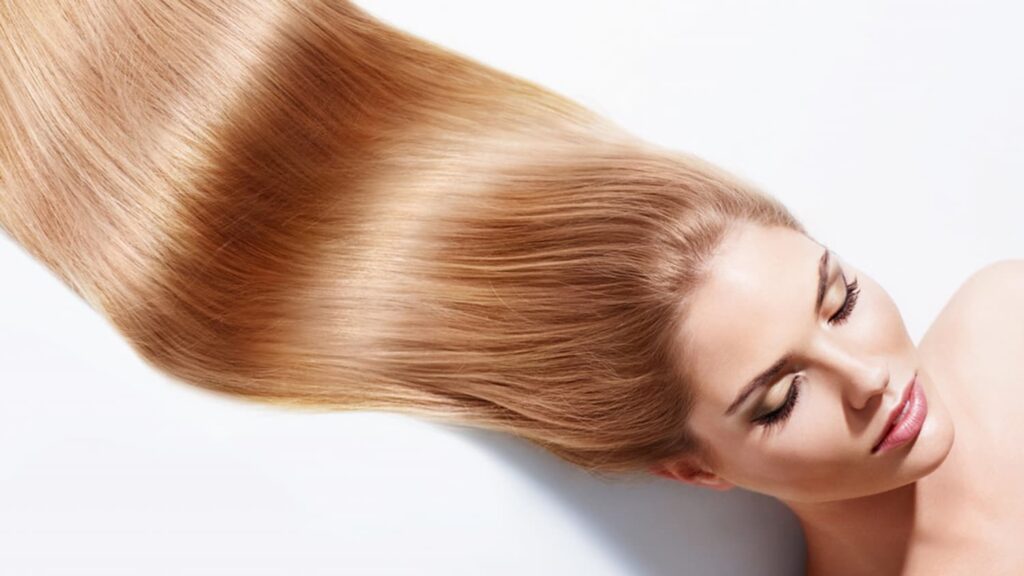
When should we see a doctor?
Dandruff in hair is usually treated with home remedies or the use of anti-dandruff shampoos. This treatment may take time, but usually, dandruff does not cause much danger to the body. However, be sure to visit a dermatologist in the following cases:
- If you notice signs of infection, redness, moisture, or swelling.
- If your scalp is very itchy.
- If you notice psoriasis, eczema, or suspicious rashes on your back, lower back, arms, behind your ears, and on your eyelids.
- If you cannot treat your dandruff using dandruff shampoo or other standard treatments.
Conclusion
Dandruff in hair, in most cases, does not indicate serious problems, But most people are displeased to see these white seeds on their heads or clothes. Dandruff can occur due to an oily or dry scalp or fungal activity. If you have dermatitis, symptoms such as redness and inflammation will automatically alert you to the existence of this problem. The good news is that various substances have been introduced to treat all types of dandruff. However, remember that the most critical issue in solving dandruff is knowing its type before treating it.
Share in :
Explore more

